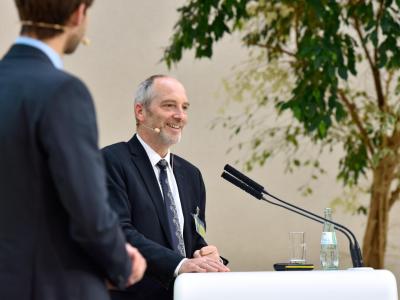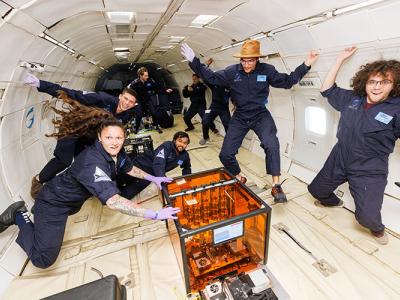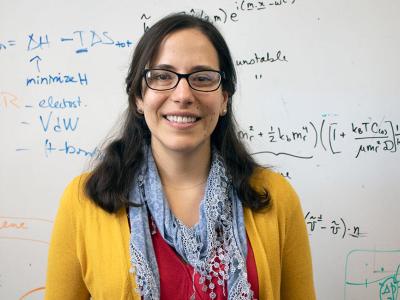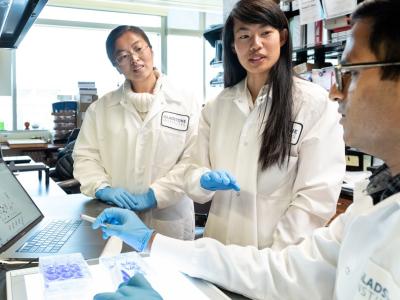For more than 15 years Barrios-Leblanc’s research has focused on promoting Philippine language and literature. She has published several Philippine language textbooks and award-winning collections of poetry. Berkeley News spoke with her about the role that literature can play in impacting political movements, and why preserving Philippine languages is important work in the efforts toward decolonization.
Research News
Learn more about UC Berkeley's researchers and innovators.
Showing 769 - 784 of 3507 Results
As social creatures, we humans care what others think and are influenced by the number of likes, hearts and retweets on social media posts. The downside? An attraction to popular beliefs — whether they’re true or false — can speed up the spread of conspiracy theories, suggests new UC Berkeley research.
Professor Arpad Horvath has been elected to the National Academy of Construction (NAC). Membership "is to be conferred with care on those few, most qualified... to share this reservoir of expertise as a service to the nation." NAC members are recognized for their extensive and diverse expertise, proven leadership, and trusted judgement.
Salamanders that live their entire lives in the crowns of the world’s tallest trees, California’s coast redwoods, have evolved a behavior well-adapted to the dangers of falling from high places: the ability to parachute, glide and maneuver in mid-air.
AI, also called machine learning, can reveal something deeper, University of California, Berkeley, astronomers found: unsuspected connections hidden in the complex mathematics arising from general relativity — in particular, how that theory is applied to finding new planets around other stars.
UC Berkeley formally launched this week The Sky Computing Lab aimed at establishing a two-sided market mediated by services that identify and harness for users the best combination of compatible clouds for their needs and building a new backbone for interconnected cloud computing, a milestone that would revolutionize the industry.
Merck KGaA, a leading science and technology company located in Darmstadt, Germany, has named John F. Hartwig, Henry Rapoport Professor of Chemistry at UC Berkeley as the seventeenth recipient of the Emanuel Merck Lectureship.
This Sunday, May 22, marks the in-person return of Breath of Life to the Berkeley campus. Running through May 28, the event is sponsored by Advocates for Indigenous California Language Survival (AICLS) and Berkeley’s linguistics department.
Last week, two teams of UC Berkeley researchers had the opportunity to test their experiments — and stomachs — aboard ZERO-G’s G-Force One, an aircraft that flies in a series of parabolic arcs to mimic the zero gravity conditions of space flight.
We are delighted to announce that Assistant Professor Markita del Carpio Landry of the Department of Chemical and Biomolecular Engineering has been named the inaugural recipient of the UC Berkeley Philomathia Prize.
In unvaccinated people, infection with the Omicron variant of SARS-CoV-2 provides little long-term immunity against other variants, according to a new study by researchers at Gladstone Institutes and UC San Francisco (UCSF), published today in the journal Nature.
To find out how much interest there is in at-home medication abortions, researchers from UC Berkeley analyzed Google searches during 2020—the first year of the COVID-19 pandemic—to determine the extent to which people searched for out-of-clinic medication abortions in the U.S. through three initial search terms: home abortion, self abortion, and buy abortion pill online.
A new analysis from UC Berkeley School of Public Health published today in JAMA Open shows that travel distance to abortion facilities may be an insurmountable barrier to abortion access in the United States.
With the nation already roiled by a draft ruling to restrict abortion rights, the U.S. Supreme Court appears poised to deliver additional conservative decisions in coming weeks on some of the most divisive issues facing the nation, UC Berkeley legal scholars said.
An underwater volcano that erupted in the South Pacific in January sent a 300-mile-wide plume of ash some 25 miles above the surface, generated a tsunami that injured and killed people thousands of miles away along the coasts of North and South America, produced a sonic boom that was heard 6,000 miles away in Alaska, and created atmospheric shock waves that circled Earth several times.
Most Americans say they want a more equal society, yet policies aimed at increasing equality for disadvantaged groups in higher education, corporations, government, and elsewhere continue to generate backlash.
















